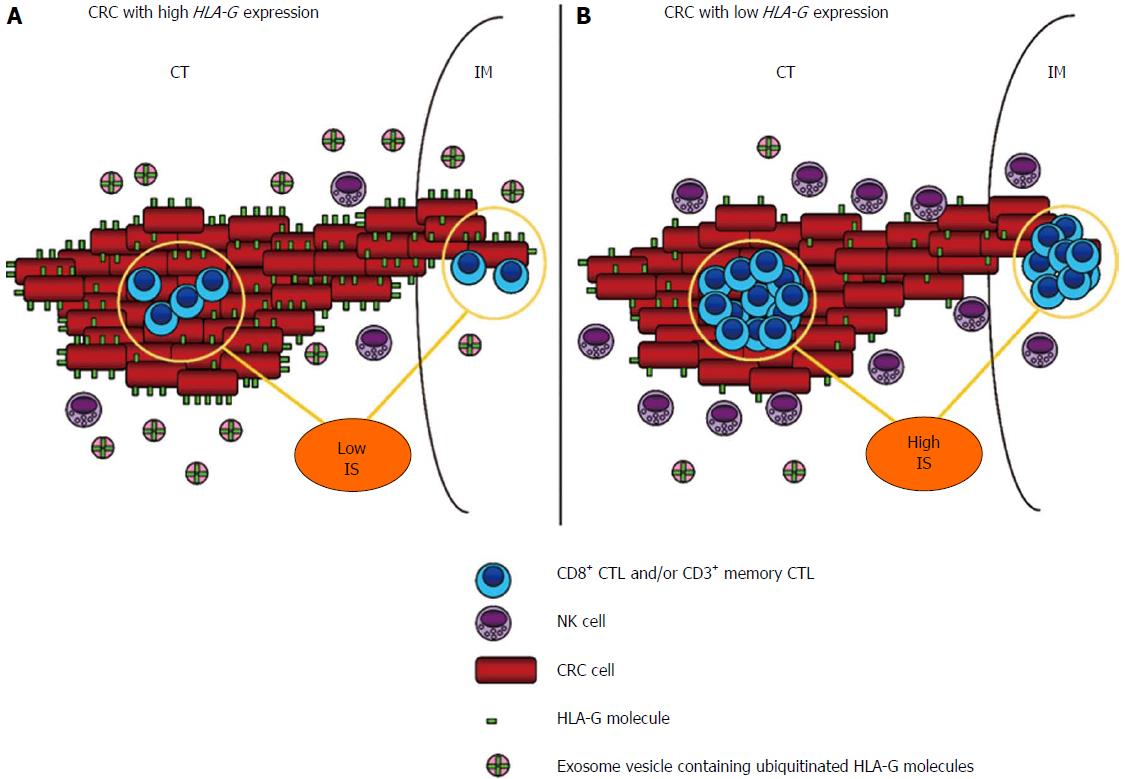Copyright
©2014 Baishideng Publishing Group Co.
World J Gastroenterol. Apr 14, 2014; 20(14): 3778-3794
Published online Apr 14, 2014. doi: 10.3748/wjg.v20.i14.3778
Published online Apr 14, 2014. doi: 10.3748/wjg.v20.i14.3778
Figure 2 Schematic representation of colorectal cancer tumor microenvironment: potential influence of human leukocyte antigen-G expression on Immune Score and host immune local response.
A: High HLA-G expression shows an inhibitory role against host immune defences, represented mostly by natural killer cells and CTLs. Increased HLA-G expression in the local microenvironment is also supported by exosome contribution through a hypothetical trogocytosis release mechanism that mediates HLA-G up-take. Another consequence is a direct association with a low IS value due to HLA-G inhibitory functions on CTLs in CT/IM areas of the tumor, and consequently with a worse patient prognosis (not represented); B: Lower HLA-G expression correlates with a high IS value and a favoureable immune contexture that improves host immune response and patient prognosis (not represented). Representation of IS is referred to recent quality and validation criteria[15] (see text for further clarifications). HLA-G: Human leukocyte antigen-G; CTLs: Cytotoxic T lymphocytes; IS: Immune Score; CT: Center of the tumor; IM: Invasive margin.
- Citation: Garziera M, Toffoli G. Inhibition of host immune response in colorectal cancer: Human leukocyte antigen-G and beyond. World J Gastroenterol 2014; 20(14): 3778-3794
- URL: https://www.wjgnet.com/1007-9327/full/v20/i14/3778.htm
- DOI: https://dx.doi.org/10.3748/wjg.v20.i14.3778









